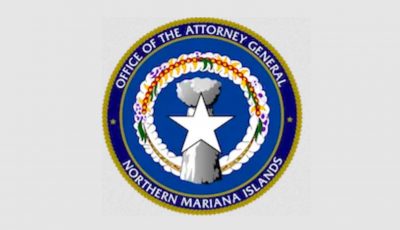THE CONSUMER CAUTION CORNER
Business scams
This week, the Office of the Attorney General’s “Consumer Caution Corner” seeks to educate business owners about how to identify and protect themselves from common scams:
The Supply Swindle
Every company needs office supplies, but small businesses and non-profits may not have a formal procurement process in place. So when supplies show up at the door, employees pay for them, assuming a colleague must have OK’d the buy. The box contains unordered merchandise or maybe it’s empty. Or a con artist may call, falsely claiming to verify an existing order. The next step: tricking an unsuspecting employee into saying yes. That triggers high-pressure threats if the business refuses to pay. Either way, the company is left holding the bag — and the bill.
The Check Cheat
Not all solicitations you get in the mail look like bills, invoices, or account statements. Your business may get something that looks like a refund or rebate check. Read the fine print on the front and back carefully. By cashing the check, you may be agreeing to be billed monthly for something you do not want or need, like Internet access or a listing in an online directory. For more examples of frequent scams, please visit the Federal Trade Commission’s website at https://www.ftc.gov/tips-advice/business-center/guidance/small-business-scams#directory.
How Can I Protect My Business?
Take the following steps to protect your company from this kind of fraud:
1. Train your staff. Educate your employees about how these scams work. In addition to your regular receptionist, talk to everyone who may pick up the phone. Put a copy of this article in employee mailboxes. Mention it in a staff meeting. Post it on the break room bulletin board or where employees clock in and out.
2. Inspect your invoices. Depending on the size and nature of your business, consider implementing a purchase order system to make sure you are paying only legitimate expenses. At a minimum, designate a small group of employees with authority to approve purchases and pay the bills. Train your employees to send all inquiries to this group. Compile a list of the companies you typically use for directory services, supplies, and other recurring expenses. Encourage the people who pay the bills to develop a “show me” attitude when it comes to unexpected invoices from companies they are not familiar with, even if those invoices list one of your employee’s names. Do NOT pay for products or services you are not sure you ordered.
3. Verify to clarify. If you get a message that looks to be from a bank, credit card company, or government agency, investigate before responding. Using a phone number you know to be legit, contact the office directly to ask if the inquiry is on the up and up. Furthermore, many business directory scam artists are headquartered in Canada or in other foreign countries, but use post office boxes or mail drops to make it look like they are in the U.S. Before paying, check them out for free at bbb.org, and read the BBB’s report on them. (link is external)
4. File a complaint. File a complaint with the FTC at ftc.gov/complaint and with the BBB. If you think you have been victimized in a fraud scheme that involves the U.S. Mail, submit a Mail Fraud Complaint Form to the (link is external)U.S. Postal Inspection Service. Finally, alert the OAG.
Each week, the OAG’s Consumer Protection Education Program aims to provide consumers and businesses with the “know-how” to identify and protect themselves from unfair trade practices and marketplace schemes. If you would like to file a Consumer Complaint, please pick up a Form at the OAG (in Capitol Hill) and then please submit it by email to consumer_counsel@cnmioag.org. We cannot act as your private attorney. If you need legal assistance, we will recommend that you contact a private attorney or legal aid organization. We cannot give legal advice or act as your private attorney. (Michael J. Cyganek, Special to the Saipan Tribune)



























